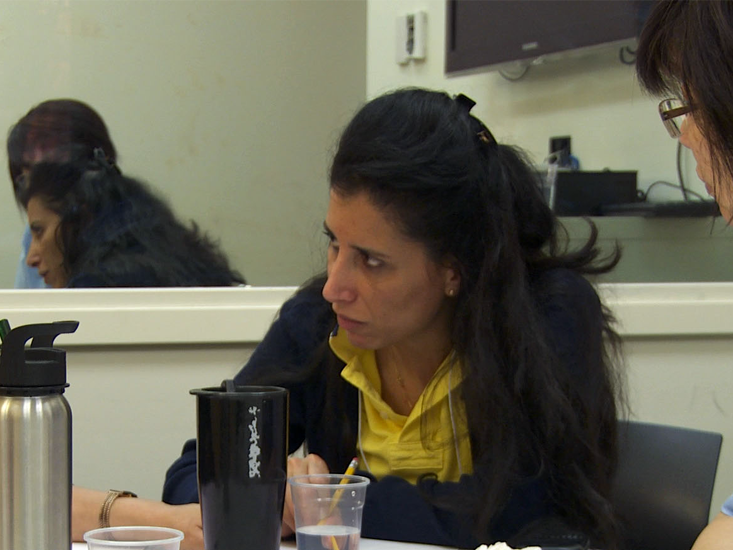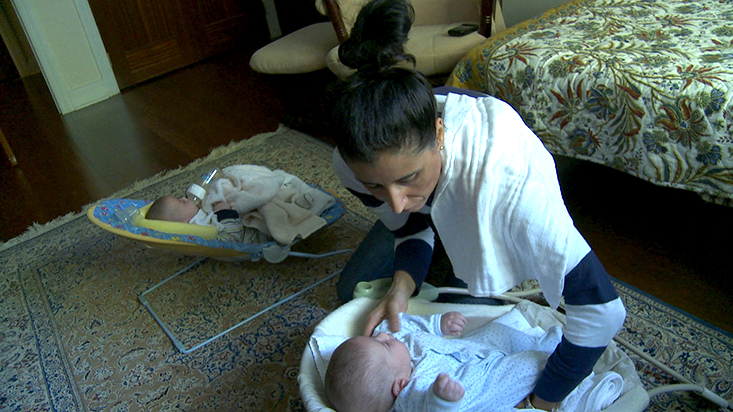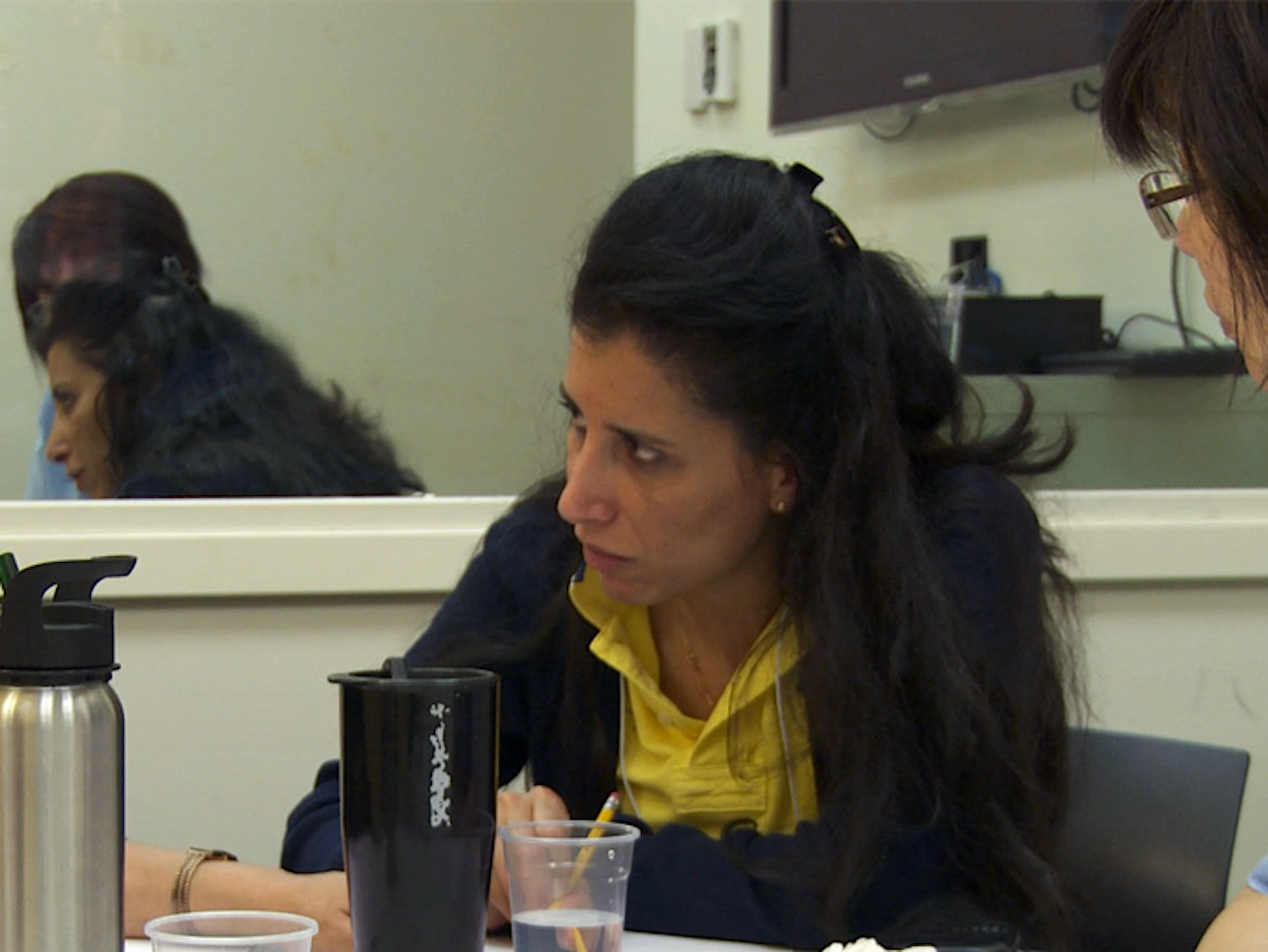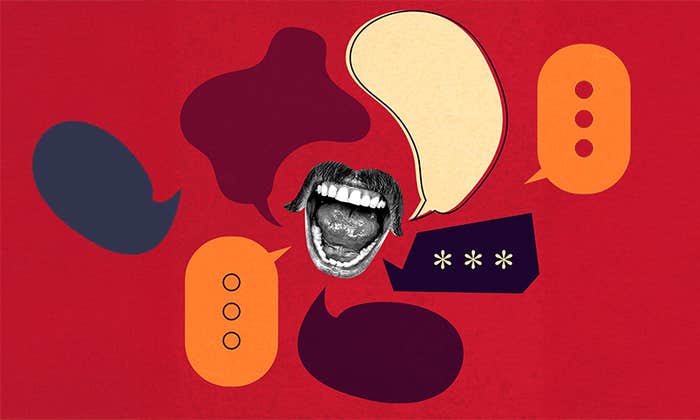
What would you do if you lost your inner monologue? You know, the one where you tell yourself “I don’t want to get up yet,” or “This is one delicious burger.” That’s what happened to Tinna Geula Phillips.
In 1997, Phillips suffered a massive stroke, which left her without the ability to communicate in any meaningful way. She went from being fluent in six different languages to virtually mute. “I cried inside, because I cannot communicate. My mom, others, Chinese! I don’t know. Is not communicate, nothing. I, six languages, gone!”
Phillips has aphasia, from the Ancient Greek “without speech.” Typically, aphasia occurs after a stroke, which causes the brain to go “into a form of shock” according to aphasia specialist Robert Volin, who runs an aphasia speech therapy clinic at New York Medical College. First, reduced blood flow or bleeding causes brain cells to start dying off. Then a cascade of neural transmitters signal the brain’s neurons to keep firing, even as they slowly starve from a lack of oxygen. Any brain cells killed during this time, says Volin, “can’t come back. [They’re] just gone.”
Between 25 and 40 percent of people who suffer a stroke will have aphasia. Damage tends to be in two brain areas: Broca’s area, in the posterior left prefrontal cortex, and Wernicke’s area, which is in the posterior left temporal cortex. In Brocha’s aphasia, people have problems with fluency, muddling the order of the words in a sentence, and disregarding grammar. Wernicke’s aphasia affects how much sense the speaker makes. Their language becomes confused, or even nonsense. It can also limit a person’s rhythm, impeding fluency and word formation.
Phillips was diagnosed with global aphasia, which is the term used to describe a severe loss of the ability to communicate and comprehend language. For two years, she says, she was unsure whether she would ever recover the means to communicate, even in a limited sense. “One year, two year, nothing. Before, going to parties. Thirties, I learning English, English, English, going to parties gone. Now, 40s, I ask ‘Why 30s [gone by]?’ Very emotion. Is very hard.”

But one of the most profound effects was losing the ability to speak with herself. Her inner monologue disappeared for several months, leaving her unable to process her own thoughts in what is considered a psychologically “normal” way. The ability to converse with one’s self, known as “self-talk,” or “inner speech,” is essential for conceptualizing our emotions, processing our memories, and for predicting the future. It is inherently associated with our sense of self.
The relationship between language and the self is made clear in child development. As infants gain the ability to understand and use language, they also become more aware of themselves and their place in their environment. When infants don’t develop their language as expected, it is often a sign of a larger issue, such as autism spectrum disorder, which is also associated with a lack of self-awareness and sociability.
Phillips is keenly aware of this connection, both as an aphasia sufferer, and as a parent: She has twin sons. “Ethan, Joshua, 1 year 10 months not talk. Many people have children 1 year 5 months talk, is very frustrating. My nanny is Moroccan, me is very hard, my husband is going to consulting and gone to 7.15 at night then one hour [they] go to sleep. I Tuesday Thursday going to toddlers, teachers told me is ok, is very good. Ethan, Joshua very good, communicate, talk.”

Phillips is just one of three people with aphasia that documentary filmmaker Guillermo F. Flórez has profiled in a new film about the condition, Speechless. In it, Phillips describes her internal silence as a total loss of identity. Some research has even suggested that internal speech is necessary for higher consciousness. But American philosopher Jerry Fodor proposes an alternative idea, called the “Language of Thought” hypothesis. He argues that in addition to our consciously perceived internal monologues, we have a second internal language that is codified into the brain—a kind of “mentalese,” that we don’t consciously perceive.
Fodor uses the analogy of a computer: There is the set of operations that occur when a particular binary sequence is executed, and there are coding languages that can be used to make those binary sequences. The brain, he argues, works in the same way: There is a base language that is tied to cognition and thought, and then there are other, developed languages that are used to express these thoughts. In this view, higher consciousness can survive even without an internal monologue.
Phillips’ husband, Jeff, points out that no one else will ever appreciate how Phillips felt during that time. Other aphasia sufferers may describe their experience very differently, and have had very different outcomes. What is clear is that some degree of recovery is possible. Volin says that people such as Phillips really prove the fact that the adult brain has a far higher degree of neural plasticity than previously thought. Contrary to many expectations, Phillips’ life didn’t stop progressing after her stroke—she met her husband years after through online dating (her sister helped set her profile up). Another impossible dream, having children, has also since been fulfilled. Now, she feels defined by motherhood and family, not by her condition—an emotion Flórez manages to capture on screen. As wrapped up in personal identity as language is, for many, it doesn’t define the self.
To find out more about Speechless and Flórez’s work, please visit speechlessdoc.com.
Claire Cameron is Nautilus’ social media & news editor.


























